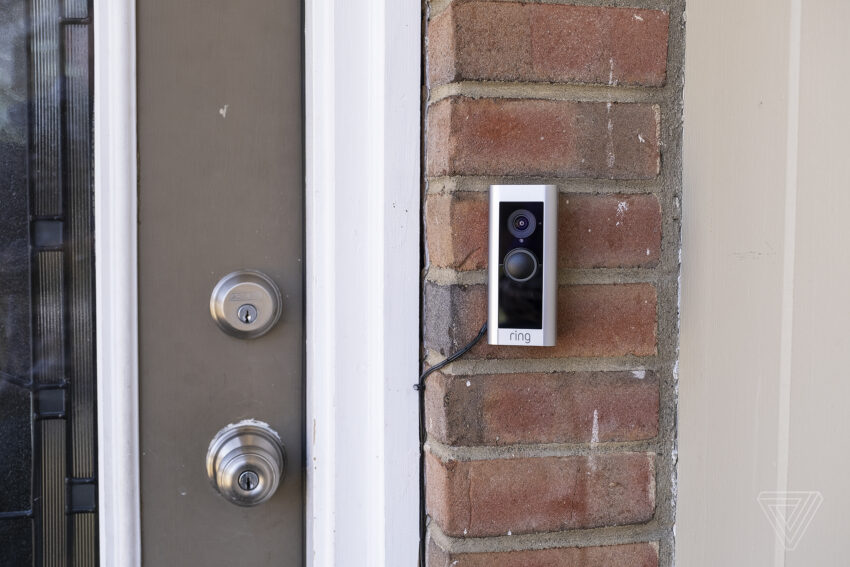
amazon s ring now works with video Amazon’s Ring has announced a new partnership with the AI-powered surveillance camera company Flock, allowing local law enforcement agencies to request video footage from Ring users.
amazon s ring now works with video
Overview of the Partnership
Amazon’s Ring, known for its smart doorbell technology, is expanding its capabilities through a collaboration with Flock, a company specializing in AI-driven video surveillance solutions. This partnership is part of Ring’s Community Request program, which aims to enhance community safety by facilitating cooperation between Ring users and law enforcement agencies.
Flock’s technology, which includes platforms like Nova and FlockOS, enables law enforcement to access real-time data and video footage from various sources. According to a letter from Senator Ron Wyden, Flock has previously granted data access to multiple governmental entities, including the Secret Service, the Navy, and Immigration and Customs Enforcement (ICE). This raises concerns about privacy and the potential for misuse of surveillance data.
Mechanics of the Community Request Program
Under the new arrangement, local law enforcement agencies utilizing Flock’s platforms can submit requests for video footage from Ring users through the Neighbors app. This process is designed to be straightforward, requiring law enforcement to provide specific details about an alleged crime, including:
- The nature of the alleged crime
- The time and location of the incident
- A unique investigation code
Once a request is submitted, it will appear in the Neighbors app feed for all users in the relevant geographic area. This feature aims to encourage community engagement and prompt users to share footage that may assist in ongoing investigations.
User Participation and Privacy Concerns
Ring emphasizes that participation in the Community Request program is entirely optional for users. They have the ability to turn off notifications for these requests, ensuring that they are not inundated with alerts. Furthermore, Ring assures users that law enforcement agencies will not have visibility into who responds to requests or who chooses not to participate. This level of anonymity is crucial for users concerned about privacy and the implications of sharing their footage.
Despite these assurances, the partnership raises significant questions about privacy and surveillance. Critics argue that the integration of Ring’s technology with law enforcement could lead to an increase in unwarranted surveillance and data collection. The ability for police to request footage without a warrant has been a contentious issue, especially given Ring’s history of working closely with law enforcement.
Historical Context of Ring’s Law Enforcement Collaborations
For several years, Ring has been under scrutiny for its collaborations with law enforcement agencies. Reports have indicated that the company has provided data to police without a warrant, raising alarms about the potential for abuse and the erosion of civil liberties. In 2024, Ring discontinued its Request for Assistance feature in the Neighbors app, which allowed law enforcement to seek footage directly from users. However, the company maintained the option for warrantless data sharing during what it deems “emergencies,” a provision that has also been utilized by other tech companies, including Google with its Nest data.
This history of collaboration has led to a growing backlash from privacy advocates and civil rights organizations. Critics argue that the partnership with Flock further entrenches a culture of surveillance, where citizens are encouraged to monitor one another and share personal data with law enforcement. The implications of this trend could be profound, affecting not only individual privacy but also community dynamics and trust.
Stakeholder Reactions
The announcement of the partnership has elicited a range of reactions from various stakeholders. Privacy advocates have expressed concern over the potential for increased surveillance and the implications for civil liberties. Organizations such as the Electronic Frontier Foundation (EFF) have long warned against the dangers of allowing law enforcement to access personal data without proper oversight and accountability.
On the other hand, some law enforcement officials argue that partnerships like the one between Ring and Flock can enhance public safety. They contend that access to community-sourced video footage can aid in investigations and help solve crimes more efficiently. This perspective often emphasizes the potential benefits of technology in fostering safer communities, though it raises ethical questions about the balance between safety and privacy.
Implications for the Future of Surveillance Technology
The partnership between Ring and Flock is indicative of a broader trend in the integration of surveillance technology with law enforcement practices. As technology continues to evolve, the line between public safety and personal privacy becomes increasingly blurred. The implications of this partnership extend beyond the immediate concerns of data access and privacy; they also touch on larger societal issues related to trust, accountability, and the role of technology in our daily lives.
As communities grapple with the implications of surveillance technology, it is essential for policymakers to consider the ethical ramifications of such partnerships. The balance between enhancing public safety and protecting individual rights is delicate, and decisions made today will have lasting impacts on the future landscape of surveillance and privacy.
Regulatory Considerations
In light of these developments, regulatory bodies may need to step in to establish guidelines governing the use of surveillance technology by law enforcement. Clear regulations could help ensure that citizens’ rights are protected while still allowing law enforcement to utilize technology effectively. Such regulations could include:
- Mandatory warrants for accessing personal data
- Transparency requirements for law enforcement agencies regarding data requests
- Public reporting on the use of surveillance technology and its outcomes
Establishing a framework for accountability could help mitigate the risks associated with partnerships like the one between Ring and Flock, ensuring that technology serves the public interest without compromising individual rights.
Conclusion
The partnership between Amazon’s Ring and Flock marks a significant development in the intersection of technology and law enforcement. While the potential benefits for public safety are evident, the implications for privacy and civil liberties cannot be overlooked. As communities navigate this evolving landscape, it is crucial for all stakeholders—tech companies, law enforcement, and citizens—to engage in meaningful dialogue about the future of surveillance technology and its impact on society.
Source: Original report
Was this helpful?
Last Modified: October 17, 2025 at 11:40 pm
1 views















